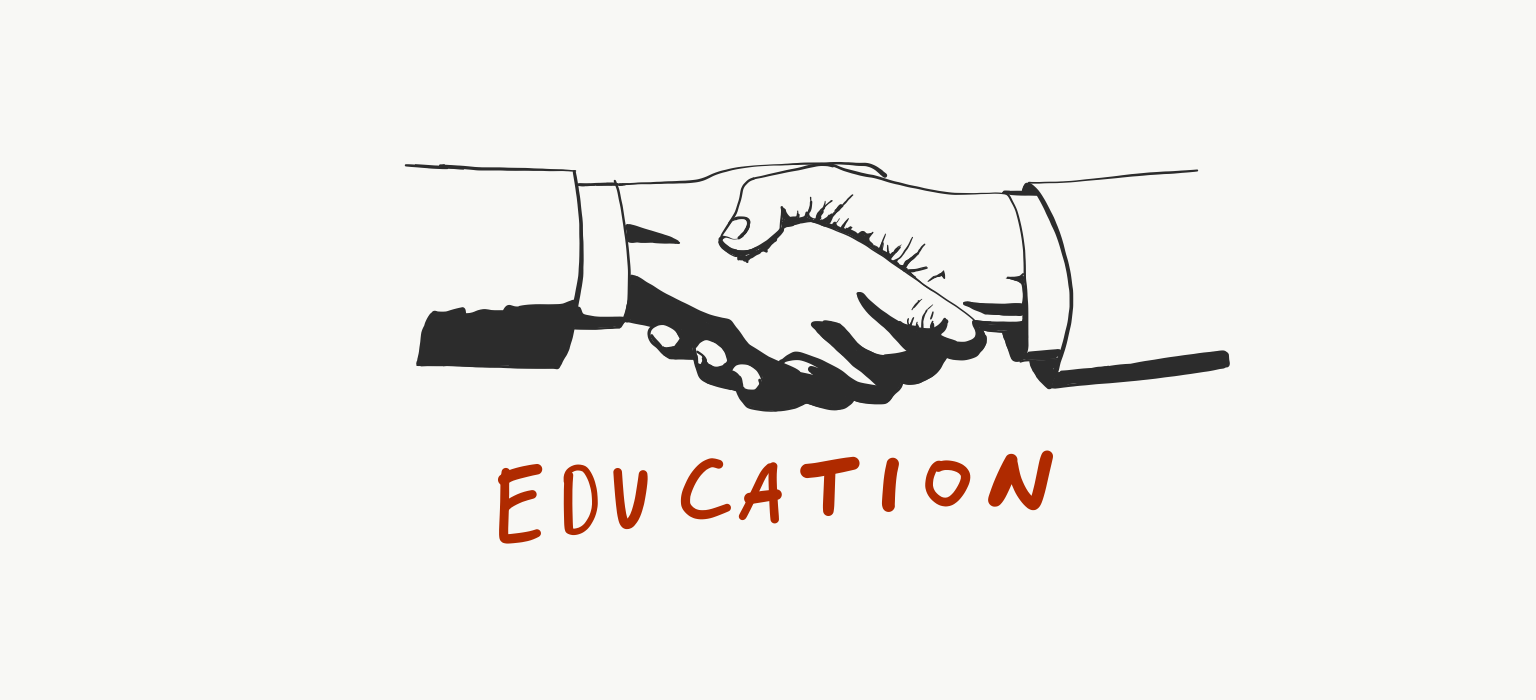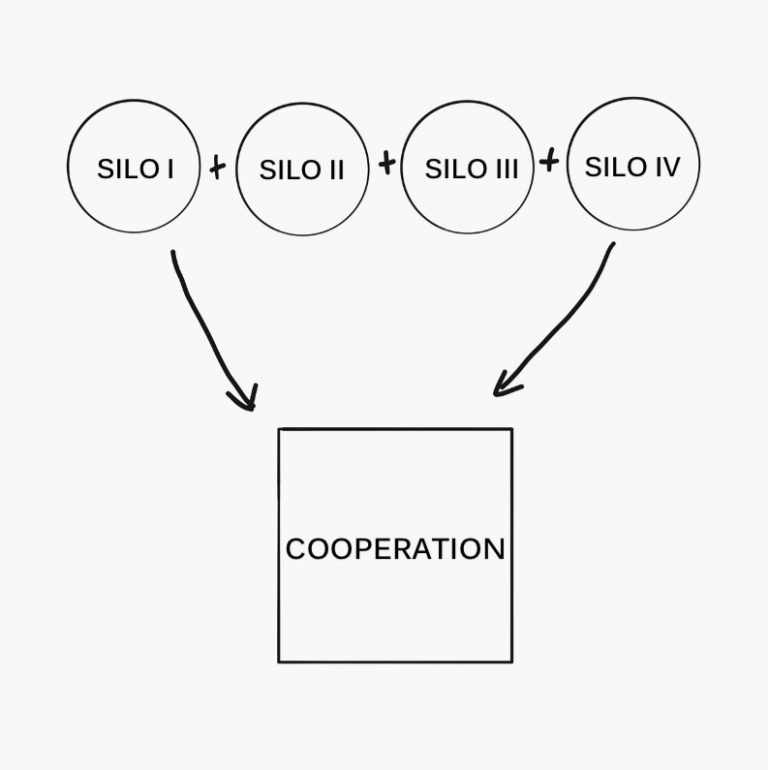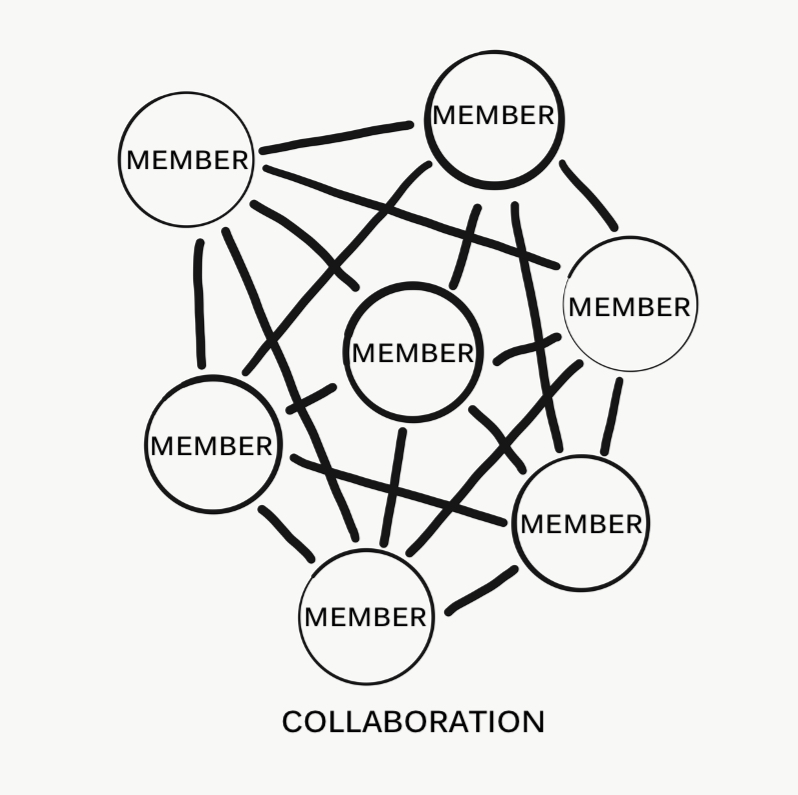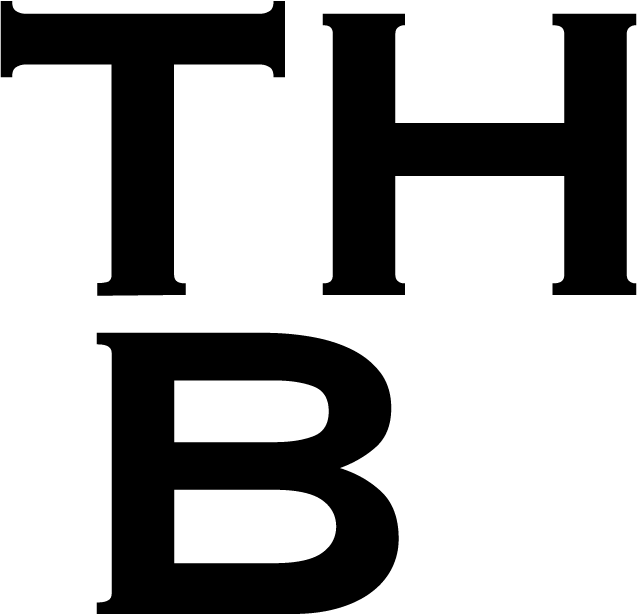
On smart education (part III)
From Linear Cooperation to Hybrid Collaboration
The third proposal for a fundamental transition towards Education 4.0 tries to find a new approach to collaboration of academic departments. I continue sharing multiple basic transition ideas that are part of a bigger project and open them up for discussion. After a proposed transition from “Disruption to Agility” and a paradigm shift from being “Student-first to Faculty-first”, this next part is questioning classic linear relations.
Cooperation is not Collaboration
For a lot of general businesses the shattering of the often dysfunctional departmental silos has forcefully taken place during and because of these last few months of a sanitary crises. The more horizontal alignment and deeper coordination of production, technology, finance, e-commerce, human resources, sales and marketing departments was more often than not the only way to survive. I am not sure that the reactions to the crisis have happened in similar ways in the educational field. Sure, different departments such as faculty, technology, admissions, marketing, quality assurance and student services are cooperating, but that’s it unfortunately not enough anymore.


Cooperation is accomplished by the division of labor among participants as an activity where each person is responsible for solving a portion of the problem. Whereas collaboration is a coordinated, synchronous activity that is the result of a continued attempt to construct and maintain a shared conception of a problem (Maeda, 2019).
In order to be really effective, not just efficient, providers of Higher Education will need to radically reshape their organization into prioritized project teams of staff, as well a students and external experts if needed (multiple stakeholders), to come up with and build innovative, agile solutions. Schools will need to optimize the work of internal specialists with that of external experts. Linear and departmental business— as well as education models are about to die. Agile,emotionally intelligentexpert hybrid teams are not.
References:
Williams, G., Maeda, J., WIRED Virtual Briefing, (24.04.2020), Wired Magazine: link
Globe Newswire, The 7 Rules For Reinventing Your Luxury Business Model Post Pandemic. (28.04.2020), Bloomberg

